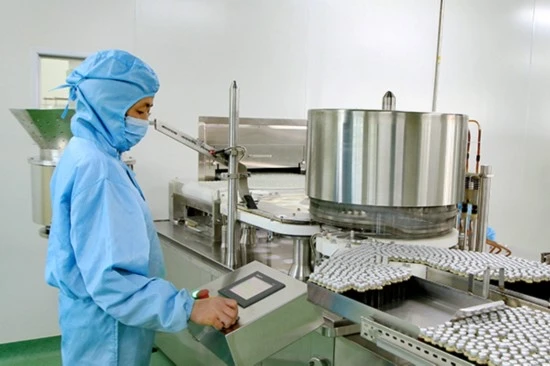- Afrikaans
- Albanian
- Amharic
- Arabic
- Armenian
- Azerbaijani
- Basque
- Belarusian
- Bengali
- Bosnian
- Bulgarian
- Catalan
- Cebuano
- Corsican
- Croatian
- Czech
- Danish
- Dutch
- English
- Esperanto
- Estonian
- Finnish
- French
- Frisian
- Galician
- Georgian
- German
- Greek
- Gujarati
- Haitian Creole
- hausa
- hawaiian
- Hebrew
- Hindi
- Miao
- Hungarian
- Icelandic
- igbo
- Indonesian
- irish
- Italian
- Japanese
- Javanese
- Kannada
- kazakh
- Khmer
- Rwandese
- Korean
- Kurdish
- Kyrgyz
- Lao
- Latin
- Latvian
- Lithuanian
- Luxembourgish
- Macedonian
- Malgashi
- Malay
- Malayalam
- Maltese
- Maori
- Marathi
- Mongolian
- Myanmar
- Nepali
- Norwegian
- Norwegian
- Occitan
- Pashto
- Persian
- Polish
- Portuguese
- Punjabi
- Romanian
- Russian
- Samoan
- Scottish Gaelic
- Serbian
- Sesotho
- Shona
- Sindhi
- Sinhala
- Slovak
- Slovenian
- Somali
- Spanish
- Sundanese
- Swahili
- Swedish
- Tagalog
- Tajik
- Tamil
- Tatar
- Telugu
- Thai
- Turkish
- Turkmen
- Ukrainian
- Urdu
- Uighur
- Uzbek
- Vietnamese
- Welsh
- Bantu
- Yiddish
- Yoruba
- Zulu
Dez . 23, 2024 11:07 Back to list
Lincomycin Hydrochloride Soluble Powder for Veterinary Use and Effective Treatment Options
Lincomycin Hydrochloride Soluble Powder A Comprehensive Overview
Lincomycin hydrochloride is an antibiotic that is predominantly used in the treatment of various bacterial infections. Derived from the bacterium *Streptomyces lincolnensis*, lincomycin belongs to the lincosamide class of antibiotics. Its soluble powder form has become particularly popular due to its ease of administration and effectiveness against a range of gram-positive bacteria.
Mechanism of Action
Lincomycin works by inhibiting bacterial protein synthesis. It binds to the 50S subunit of the bacterial ribosome, which ultimately prevents the peptide bond formation during protein synthesis. This action effectively halts the growth and reproduction of susceptible bacteria, making lincomycin a potent choice for treating infections caused by such pathogens.
Indications
Lincomycin hydrochloride is commonly indicated for the treatment of serious infections caused by anaerobic bacteria and certain gram-positive microorganisms
. It is often used to treat conditions such as- Osteomyelitis - Septicemia - Soft tissue infections - Respiratory tract infections - Infections of the skin and soft tissues
Additionally, lincomycin is utilized in veterinary medicine for various bacterial infections in animals, demonstrating its versatility across both human and animal health.
Dosage and Administration
lincomycin hydrochloride soluble powder前面有这个产品

The administration of lincomycin hydrochloride in soluble powder form offers significant advantages in terms of dosing accuracy and flexibility. The powder can be reconstituted in water or other suitable solvents, allowing for adjustments in concentration based on individual patient needs. Medical professionals often consider factors such as the severity of the infection, the patient's age, and overall health when determining the appropriate dosage.
The typical dosage for adult patients may range from 500 mg to 1,500 mg daily, divided into multiple doses depending on the infection's severity. In children, the dosage is often calculated based on body weight. Careful monitoring ensures effective treatment while minimizing potential side effects.
Side Effects and Contraindications
As with any medication, lincomycin hydrochloride is associated with potential side effects. Common side effects may include gastrointestinal disturbances such as diarrhea, nausea, and abdominal pain. In rare cases, severe allergic reactions or anaphylaxis may occur. Importantly, lincomycin use has been linked to the risk of Clostridium difficile-associated diarrhea, a serious condition that may arise from antibiotic treatments.
Certain populations should exercise caution when using lincomycin, particularly individuals with a history of hypersensitivity to lincosamide antibiotics or those with hepatic or renal dysfunction. Pregnant and breastfeeding women should consult healthcare providers before using this medication, as it may pass through breast milk.
Conclusion
Lincomycin hydrochloride soluble powder remains a vital tool in the fight against bacterial infections. Its effectiveness against a range of pathogens, combined with the flexibility of dosage administration, makes it a preferred choice among healthcare professionals for treating serious infections. However, as with any antibiotic, responsible use is crucial to prevent the development of resistance and ensure the continued efficacy of this important medication.
Healthcare providers are expected to conduct thorough assessments and consider patient-specific factors to optimize treatment outcomes while monitoring for adverse effects. By understanding the pharmacological profile of lincomycin hydrochloride and its appropriate use, clinicians can better serve patients needing effective antimicrobial therapy. As research and clinical practices evolve, lincomycin will undoubtedly continue to hold a significant place in modern medicine for both humans and animals.
-
Guide to Oxytetracycline Injection
NewsMar.27,2025
-
Guide to Colistin Sulphate
NewsMar.27,2025
-
Gentamicin Sulfate: Uses, Price, And Key Information
NewsMar.27,2025
-
Enrofloxacin Injection: Uses, Price, And Supplier Information
NewsMar.27,2025
-
Dexamethasone Sodium Phosphate Injection: Uses, Price, And Key Information
NewsMar.27,2025
-
Albendazole Tablet: Uses, Dosage, Cost, And Key Information
NewsMar.27,2025













